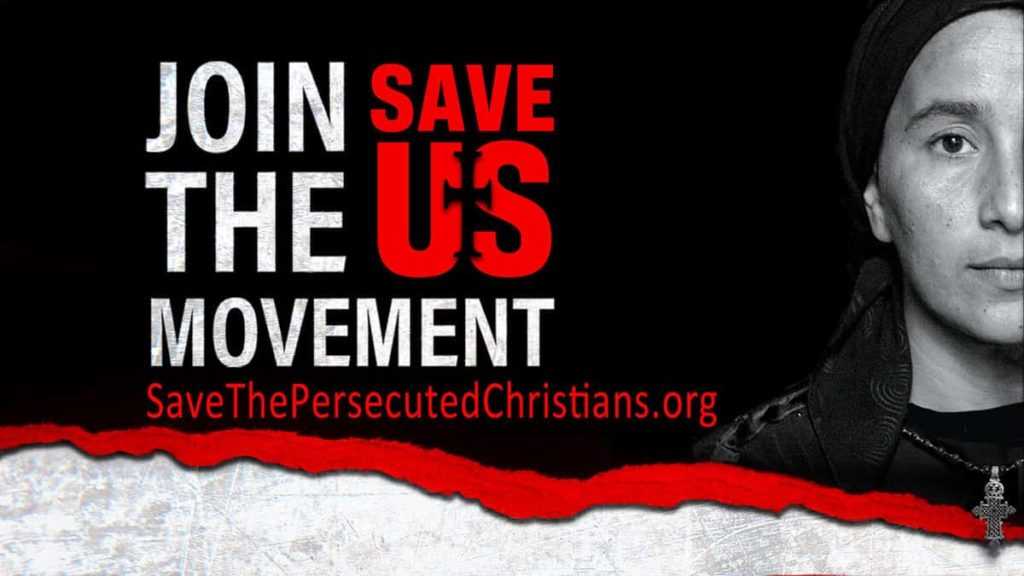Activists demand lobbying firm drop nations that persecute religious minorities from client list

Originally posted on the Washington Times
Rallies in more than a dozen cities across the country on Wednesday called on a powerful lobby firm to drop its foreign government clients that persecute religious minorities.
Organized by nonprofit watchdogs Save the Persecuted Christians and Nations in Action, the rallies targeted the international lobbying firm Squire Patton Boggs, whose representation of foreign governments such as Saudi Arabia and China has come under fire in recent weeks.
“We are asking Squire Patton Boggs to drop known persecutors China, Qatar, Saudi Arabia, Cameroon, and the Palestinian Authority from their client list,” activist Dede Laugesen said outside the firm’s Denver offices. “They lobby for these countries who are known persecutors of people of faith.”
Activists staged similar rallies at the firm’s headquarters in Cleveland and its offices in Tysons, Virginia, and Phoenix and other cities.
The rallies drew attention to the rise in anti-religious fervor worldwide, as international human rights groups have documented increasing attacks against Christians, Muslims and Jews.
In Washington, D.C., about two dozen demonstrators marched around Squire Patton Boggs‘ Foggy Bottom offices with signs that read, “Honk for Freedom in Saudi Arabia.”
“These people represent the worst of this town,” said Frank Gaffney, president of Save the Persecuted Christians. “They take money from the very regimes that oppress religious minorities.”
Squire Patton Boggs did not respond to requests for comment. It has offices in Beijing and Shanghai, and offers clients a way to navigate the business climate in Qatar on its website.
In a letter activists left at the front desks of the firm’s offices, Mr. Gaffney and others called out Squire Patton Boggs strategic adviser John A. Boehner, the former House speaker, and called on the firm to drop foreign persecutors in advance of next week’s religious freedom summit hosted by the State Department.
“The Saudi government ought not to have representation up on Capitol Hill,” former Rep. Frank Wolf, Virginia Republican, said outside Squire Patton Boggs‘ D.C. offices.
Mr. Wolf criticized the Saudis for harboring 9/11 terrorists and publishing anti-Semitic textbooks.
The rallies arrived on the heels of several reports on increasing religious discrimination and persecution around the world.
Last month, the State Department released its annual religious freedom report, criticizing China for its internment of 1 million Uighur Muslims in reeducation camps and Qatar for printing anti-Semitic cartoons in state-owned newspapers after the Trump administration announced it would move the U.S. Embassy in Israel from Tel Aviv to Jerusalem.
The Christian advocacy group OpenDoorsUSA documented a rise in worldwide attacks against Christians in its annual World Watch List, published earlier this year.
And a July 4 report from Anglican Bishop Philip Mounstephen of Truro, commissioned by the British government, called on “Western voices” to recognize the “plight of Christians.”
“It’s extremely serious,” said Kyle Olbert, a member of the East Turkistan National Awakening Movement who attended the D.C. rally. “We’re here to express our condemnation of this white-shoe firm doing business with these nations who are engaged in egregious religious freedom oppression.”
The last six months have seen gruesome attacks on people of faith. Fifty-one people were killed in March in shootings at mosques in Christchurch, New Zealand. More than 250 people died in bombings in Sri Lanka that targeted Christians on Easter.
As the 2018 State Department report shows, religious discrimination emerges in a range of subtle, sometimes less-detectable ways.
The report documented brutal attacks against Jehovah’s Witnesses evangelists in Israel, the unprecedented 16% rise in the number of anti-Semitic incidents in the U.K., and an incident in Sweden when government authorities refused a Christian refugee’s application for asylum on religious persecution grounds in his home country of Afghanistan. That applicant later took his own life, the report says.
- Military Starship: How SpaceX Is About to Make America Globally Dominant - March 4, 2025
- The Cautionary Tale of Zheng He - December 4, 2024
- Frank Gaffney departs CSP after 36 years - September 27, 2024
